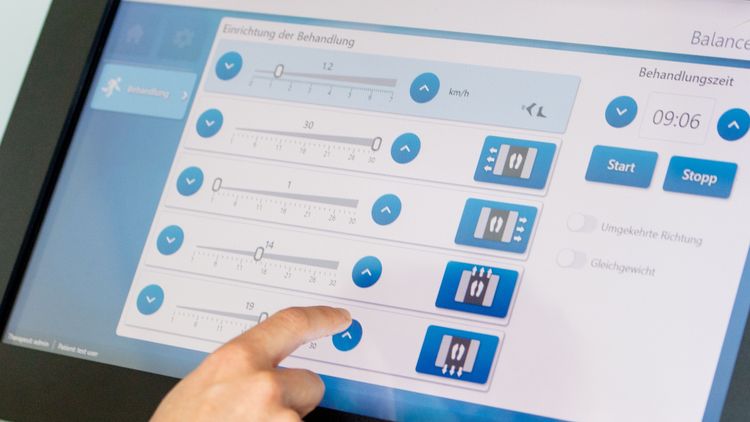Improving assessment of the risk of repeated falls in older adults and providing targeted prevention is the aim of a new research project led by Tania Zieschang, Professor of Geriatrics at the University of Oldenburg.
The Federal Ministry of Education and Research (BMBF) has approved 1.8 million euros in funding for the first three-year phase of the project, which is entitled "Sentinel Fall presenting to the Emergency Department directly discharged" (SeFallED). Also taking part in the project are several other researchers from the University's Department of Health Services Research as well as from the Klinikum Oldenburg, and the Universities of Groningen (the Netherlands), Münster and Heidelberg.
Falls and the resulting bone fractures are associated with a high mortality rate and are among the main reasons why older people move to a nursing home. Treatment of the consequences of falls incurs high costs for the healthcare system, amounting to more than two billion euros per year in Germany alone. Even when they don't cause a bone fracture, falls are among the incidents that most frequently lead to incapacitation in older people in Germany. "This has a direct impact on the ability to cope with everyday life, on social participation, and on overall quality of life," says Zieschang, explaining why she estimates reducing the risk of falls and thus preventing further falls as so important.
Her research team will focus on people over 60 years of age who seek medical assistance at an emergency department after a fall and are discharged after receiving outpatient treatment. In contrast to those who are treated as inpatients, outpatients do not receive secondary prevention measures – measures aimed at preventing further falls – on a systematic basis. The research team plans to recruit around 450 participants for a study and monitor them over a period of one to two years – or longer if the project continues to receive funding.
In addition to a comprehensive geriatric assessment, innovative technologies will be used to analyse risk factors for further falls. This includes gait analysis on a device called a 'perturbation treadmill', which simulates jerky movements, such as when a bus starts moving, in order to analyse an individual's dynamic balance. The research team also plans to assess whether training on this type of treadmill can improve dynamic balance.
Through sensors attached to various locations on the test subject's body, the researchers will also record movement data during the diagnostic procedure. They then plan to evaluate the data using machine learning methods in order to recognize habitual movement patterns that make a person prone to falls. Based on the different building blocks of data, the researchers will develop a statistical prediction model for calculating an individual's risk of falling which provides the starting point for new, customized prevention measures. The research team's findings on the needs and preferences of patients and their caregivers, on supportive factors and avoidable barriers are also to be incorporated into these measures.
Based on the results from the SeFallED project, the participating researchers plan to set up a specialist clinic for falls prevention in Oldenburg.




